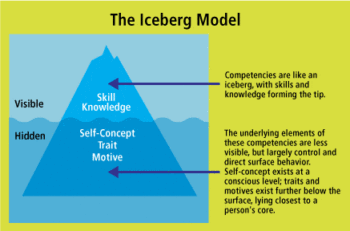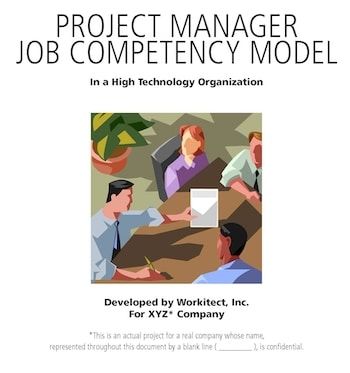Over the years, competency modeling has been the subject of its share of criticism, particularly with respect to their level of complexity. Many have indeed argued that in addition to the fact that developing customized models that can be applied across the multitude of job roles within an organization is an arduous challenge, competency modeling is a language that most managers don’t speak. Rather, a great deal of HR professionals and line managers prefer to talk about skills and experience when assessing and selecting internal or external candidates for open positions
But can acquired skills and past experience really support an organization’s need to remain in constant movement, to evolve, to adapt to a rapidly changing environment?
As groundbreaking technologies make their way into our professional lives at a pace faster than most companies can adapt to, can the simple fact of having learned a certain skill guarantee a company’s future success?
A skill is a skill is… not a competency
There is an important difference between skills and competencies, although both terms are unfortunately often used interchangeably.

A competency extends a bit further on this definition to include the behaviors, motives and knowledge required to utilize that skill to produce the desired results. In the context of workforce planning and talent management, competencies can therefore be defined as a group of measurable traits that allow an organization to assess an individual’s probability of superior performance, in addition to the skills he/she already possesses.
In other words, competencies do include the underlying skills needed to produce a given outcome, but they also involve a lot more than the ‘technical’ abilities an individual has acquired over the years, to include what employees possess in the way of personal characteristics that enable them to produce superior results.
The bottom line: Why competencies matter
Typically, when companies realize they need an employee to fill a new or newly opened position, they begin the search for a candidate who ‘knows what they’re doing’, i.e., who can perform the task based on their educational and/or professional record. In doing so, the organization is evaluating the value of this candidate based on previously demonstrated skills, overlooking the person’s future contribution. Yet, in our current environment, successful companies must be a step ahead of the current trends to win the game.
We’ve recently discussed how it is ludicrous for an employer to assume that all employees aspire to be boss one day. Many are very content with fewer responsibilities in their careers, placing more emphasis on achieving success elsewhere in their life. As a result, a company in the staffing process may now be placed in a situation where it must choose between a candidate with 15 years’ experience in the field with no career advancement motive, and a candidate with 5 years’ experience with a great inclination for acquiring new skills.
This desire to learn is not a skill, but part of a competency cluster that is crucial to companies. In general, competencies at the motive or trait level (e.g., initiative) are more difficult to develop than competencies that resemble skills (e.g., persuasiveness, communications). It is those harder-to-develop competencies that should be the criteria for selection, rather than ‘skills’ that can be learned.
Customization: Looking inward to play your strengths

Example of a Custom Competency Model
Building a competency model for future success requires more than listing the traits or motives desired within a certain job role. If competency models have fallen short of their goals, it may be due to too many organizations deciding to create just one model or buying an “off-the-shelf” model for the entire organization, thereby failing to recognize the unique aspects of their own strategy, culture and values.
This method can be compared to taking another company’s logo, tweaking it a bit, and calling it your own. Competency models defined in this way may provide clear direction on how to be successful in another company, but result in poor linkage to results and poor alignment with your organization’s strategy.
But, generic tools can be critical to the competency modeling process, as they serve as a guideline, a starting point in your development process. After all, by utilizing the tools at your disposal, you save considerable time and money. But the competency modeling process involves more than listing ‘desirables’ on paper. It entails looking inward, at where your organization is, what it intends to accomplish, your competitive landscape, and the obstacles that may stand in your way over time.
There are as many ways to learn to build a truly valuable and viable customized competency model for your organization as there are applications to modeling: succession planning, performance management, recruiting, training and development, etc.
Read more in this post: Tailor job competency models to your organization’s vision, mission, and shared values
You may want to take advantage of onsite workshops, which tailor for you generic competency models to the needs of your organization, or attend our Building Competency Models workshop, where participants learn the techniques required to develop and implement their own models, with the support of an array of already-available tools.
What’s more, Workitect also offers webinars and white papers to further guide you in the process, so that you may derive the best value from the tools we have developed over our decades of experience.
We invite you to contact one of our consultants to discuss the best solutions for your situation.
A SET OF CUSTOMIZABLE TOOLS FROM WORKITECT THAT HELP ORGANIZATIONS SELECT, DEVELOP, AND RETAIN SUPERIOR TALENT
Workitect provides competency-based talent management tools, programs and systems.
Workitect, Inc.
www.workitect.com
Telephone: 954-938-5370 or 800-870-9490, Email: info@workitect.com



Leave A Comment